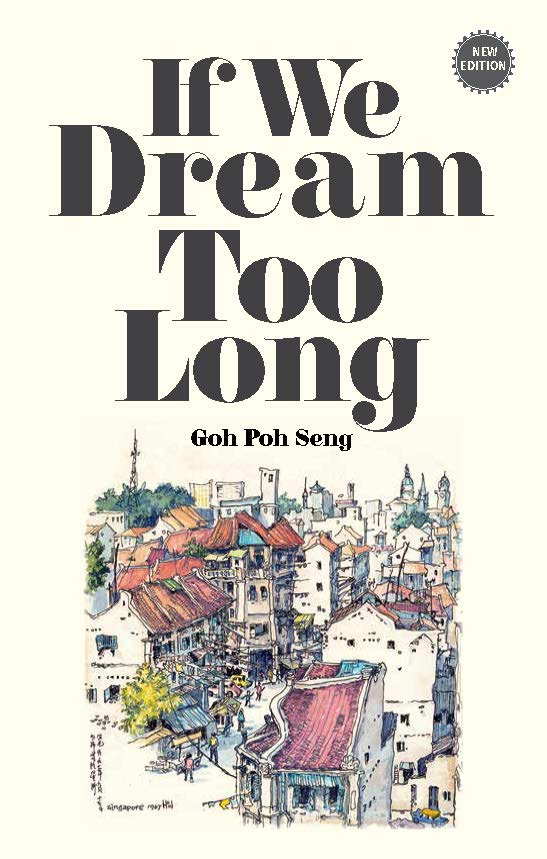“There are three essential criteria for defining a classic: it must have endured a number of years; it must have intrinsic literary quality; but, most crucially, it must still be alive, to be able to connect with readers, thrilling them with flashes of recognition and revelation.”
– Henry Eliot, editor, The Penguin Classics series
FROM ACROSS THE MILES, a world away, came a recent email. A lecturer in an American university had a query about Mencius in If We Dream Too Long which had puzzled him and his students (and probably, other readers). That query (more about which later) and his reasons for choosing the novel for his World Literature course and his students’ responses, confirm how ‘alive’ the novel is still and what makes it a classic.
‘If We Dream Too Long by Goh Poh Seng’, he wrote, ‘was by far the favorite of the semester … because it sparked great conversations about class, capitalism, colonialism, happiness, dreams, etc.’ When I asked why he had selected it for study in the first place, he replied, ‘I was planning this course last Fall as an upper-division World Literature course on the Bildungsroman across cultures. My colleague insisted that I would forever regret it if I did not [include] this “little gem of a novel” in my course, and she was right. It proved to be very accessible to my undergrads, but deceptively complex. It inspired great conversations that lasted the entire week, and my students universally loved it. I only wish Poh Seng were alive to know how much they liked it.’ (If only he were, indeed; for he notes in his Preface, ‘What has made Dream worthwhile has been the response from individual readers…It is responses like this that I treasure.’)
When If We Dream Too Long (henceforth, Dream, for short) first appeared in 1972, ‘the local press was unenthusiastic’, the reviews being even harsh. Despite being a joint winner of the inaugural NBDCS (National Book Development Council of Singapore) Fiction Award in 1974, as Goh notes, too, in his Preface, the novel also failed to obtain recognition from ‘the university’ which was ‘not supportive’. While book reviewers in ‘the local press’ had the power to recommend the novel to the reading public, the university’s academics had the power to persuade their peers elsewhere and their students that the novel was worth reading and studying. Necessarily self-published, it also lacked the distribution channels and publicity that might have helped it extend its reach.
Nonetheless, the qualities that won it the NBDCS award gradually became appreciated by novelists who came after him, such as Philip Jeyaretnam and Simon Tay. Young literary journalists whose older predecessors had rejected the novel and dis-recommended it, have since discovered it for themselves. So have a new generation of literary scholars and their students at the universities. Dream began to feature in the curricula of not only Singaporean but also universities in Malaysia, the Philippines, Australia and the USA. Increasing numbers of articles about the novel began appearing in literary journals and books. Most recently, literary scholars, availing themselves of NUS Press’ fresh edition of the novel are seeing new aspects of the novel — for instance, where the male protagonist was seen before as an ‘anti-hero’, he is now also perceived as a ‘failed man’ because Kwang Meng resists ‘the hegemonic masculinity promulgated by the [Singapore] state’.1
Introduction continues...
References
1. Angelia Poon, ‘In Praise of Failed Men (and the Woman Writer): Gender Politics in the Singapore Novel’, in Singapore Literature and Culture: Current Directions in Local and Global Contexts, ed. Angelia Poon and Angus Whitehead (New York and London: Routledge, 2017), pp. 217–36.
